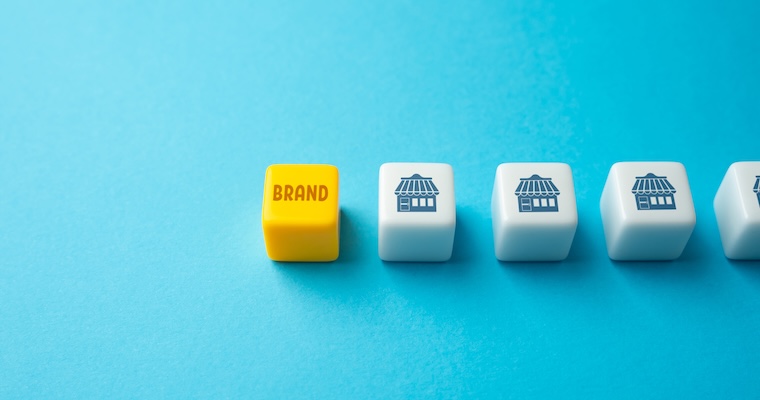Take a CLEAN Look at Your Business Post-COVID-19

EDITOR'S NOTE: This very popular article, published in 2020 during the height of the pandemic, includes timeless advice for helping startups, small businesses and family firms learn from adversity and emerge stronger.
The damage inflicted by COVID-19 on small businesses is unprecedented in our lifetime. It’s hard to think about anything other than the pandemic, but as Albert Einstein noted, “in the midst of every crisis lies great opportunity.” As small business owners solve today’s problems, they also need to look ahead to the post-COVID-19 era. Emerging from the pandemic will provide small business owners a clean slate upon which to reinvent their companies. Using the acronym CLEAN, here are five tips for succeeding within the less-dangerous-but-uniquely-challenging period ahead.
Combine old and new business models. The pandemic has forced many small businesses to experiment with their offerings and distribution channels. For the first time, Canlis, a Seattle, Washington fine-dining restaurant, is reaching customers via food delivery and drive-through. This has infused much-needed cash into the business as well as keeping employees on staff as delivery drivers. Are these changes a desperation strategy or a surprise innovation? For most small businesses, it’s somewhere in between. Keeping new elements that have worked makes sense, but only if they won’t kill a successful business model. A premier restaurant will lose prestige if it keeps delivering high end food to homes. However, home delivery of a limited menu, perhaps under a different brand name, could add an important revenue source.
Learn and be ready for the next crisis. Small business owners cannot allow themselves to be caught off-guard again. Owners should study what responses in their business and industry worked and did not work and distill lessons learned. Most grocery stores rationed goods while adding curbside pickup and/or delivery, but many were slow to do so. We recommend documenting such contingencies to pivot quicker if the need arises. Equally important, businesses need to codify what they have learned from failures during the crisis in order to improve the customer experience in the future. Going a step further, consider exchanging insights about best practices with one’s rivals. This seems like a counterintuitive move, but it could help all involved when another problem arrives.
Engage your customers. Given the need for social distancing, many small businesses have elevated their use of websites, email, social media, and physical signage to keep customers informed. When the pandemic’s end is in sight, companies can leverage this new emphasis to engage customers. It’s human nature to crave what we can’t have. As China has experienced, relaxation of shelter in place rules will unleash a mad scramble to enjoy bars, restaurants, fitness clubs, and more. Explaining to customers – before they are set free – the unique value of your business’s longstanding and recent innovative offerings will be critical to capturing the initial spike of post-pandemic traffic. Especially vulnerable are companies who happened to be uniquely well-positioned when COVID-19 spread. Boutique mail-order grocers Farmbox Direct and Porter Road have seen demand for their vegetables and meat, respectively, skyrocket during the pandemic. Engaging their new customers as the trouble winds down will be essential to retaining them.
Adapt health and safety initiatives—the bar has been raised. In the past, people who obsessed over the transfer of germs were ridiculed as germaphobes. But COVID-19 has made us all germaphobes. Small businesses’ responses have been stellar. As just one example, new cleaning processes at Pikes Peak Brewing Company in Monument, Colorado include sanitizing condiment containers after each use, wiping hard surfaces every thirty minutes, and daily deep cleaning. Post-pandemic, companies will need to continue to meet heightened cleanliness standards as well as educating customers and employees about the specific steps being taken. We expect that trade groups such as the Brewers Association and the International Franchise Association will create and publicize new cleanliness standards for their members, most of whom are small businesses. Greater attention to these issues is long overdue given that the flu kills tens of thousands of Americans annually.
Navigate post-COVID expectations. Consumers are uncharacteristically forgiving at the moment. Most understand why certain products are unavailable and they have lowered their expectations about customer service. Once the economy reboots, customers’ previous high expectations will return quickly. However, small businesses will not be able to simply flip the switch and return to normal operations right away. For example, many small clothing retailers rely on overseas production and restoring these supply lines will take time. The resulting stock outs and delays may harm customer loyalty, market share, and revenue long after the pandemic subsides. Making customers happy will often require expressing empathy – such as through a personal apology from the owner – and compensating them for their inconvenience and frustration via a discount on the purchase. An angry customer seldom returns, so never disappointing one needs to be the post-pandemic goal.
All bad things come to an end and, as Einstein pointed out, a crisis creates chances for improvement. Hopeful signs that the pandemic may subside soon mean the time is now for small business owners to take a CLEAN look at the upcoming opportunities.

Harbert Eminent Scholar / Management and Entrepreneurship / Auburn University
View Profile

Dove Professor of Supply Chain Management / Haslam College of Business / University of Tennessee
View Profile




